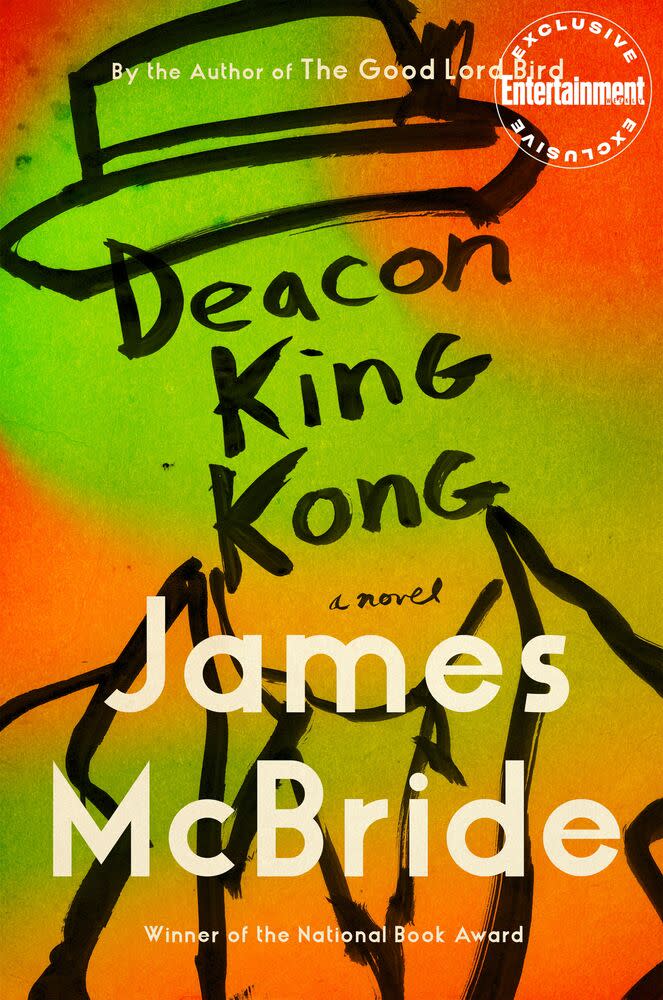James McBride on his literary heroes and the books he wishes he'd written
James McBride, the best-selling author of The Good Lord Bird, returns March 3 with Deacon King Kong, an ode to 1960s Brooklyn — culture clashes, drug deals, and all. Here, he tells EW about the books that shaped his literary career.
My favorite book as a kid
The Human Comedy, by William Saroyan. I loved Homer, the main character. I was like Homer. Homer moved in the right ways. He tried to do the right thing. He was compassionate and misunderstood.
A book I’ve pretended to read
I’m not dense enough to pretend to read something I haven’t. I’d rather ask, then discover the book and learn something new. There are plenty of good books I haven’t read, though: The Great Gatsby and The Stranger are two of them.
The last book to make me laugh, and the last book to make me cry
A Man Called Ove did both. It’s a magnificent homage to humanity and to the possibility of friendship and faith in long-lost love. It covers a lot of ground: marriage, love, race, class, division, gentrification. It’s one of those good stories that connects. Fredrik Backman… wow. He really put that thing together!
A book I’ve read over and over
To Kill a Mockingbird. In terms of story structure, it’s one of the best around. Harper Lee had the magic.

Books I wish I had written
Life of Pi and Cold Mountain. In both cases, the author thrusts the reader into the story by sending the plane airborne instantaneously. No runway. No windup. Just lift the story into the air and let it fly. That takes great skill. In both books, two mortally wounded, noble, and morally right characters bent on survival find themselves trapped in circumstances that are far beyond their control. Unexpected, knockout endings in both books. These books just work.
My literary heroes
John A. Williams and Kurt Vonnegut. Williams was an African-American writer whose work opened the door for writers like me. I met him years ago as a reporter and expected a bitter guy full of anger; that’s how the press played him. Instead, he was kind, insightful, generous, very thoughtful.
I had lunch with Vonnegut and his wife, the talented photographer Jill Krementz, not too long before he died. After lunch Jill left us alone and Kurt and I listened to Wagner and Louis Armstrong in his sitting room. We talked music for a long time. He loved those two creative musical voices.
An adaptation of a book I loved
The English Patient, by Michael Ondaatje. I’ve always admired his books, which read a bit like Sonny Rollins’ jazz: unpredictable, bursting with reasonable conclusion. The film version of this gorgeous novel is wonderful.
A book people might be surprised to learn I love
Mary Chesnut’s Diary. She was the wife of a Confederate commander during the Civil War. Her take on the Civil War, the run-up to it, and the nation’s eventual collapse into the chaos of war are profound and insightful. There’s much to be learned from her thoughts — even today.
The author who changed my life
There’s no one answer. At times I could say: Alice Munro, Henrik Ibsen, Toni Morrison, E.L. Doctorow, Edwidge Danticat…Each of them change your life the moment their illumination turns your head towards the indefinable element known as “story.”
What I’m reading right now
Out of Poverty, by Paul Polak. Polak was a doctor and businessman who traveled the world for years helping farmers and poor communities learn how to fend for themselves. He did this by listening to the needs of poor farmers — he estimated he had interviewed nearly 3,000 families over the course of his career — and then designing apparatuses that made their daily lives easier and more fruitful, like well pumps and farming apparatuses. This remarkable inventor was a child when his family fled Europe and the Nazis at the start of World War II. He spent most of his adult years caring about others. Some of his ideas about self-sufficiency are pertinent to my own work in my own community.
A book I had to sneak growing up
Nothing was out of bounds for me. Playboy magazine was about as illicit as you could get in my house.
Related content:

